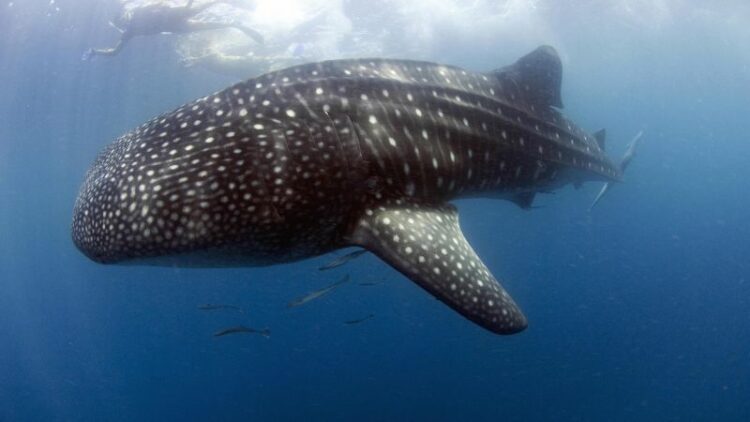CNN
—
As it turns out, whale sharks – the biggest fish in the seas – are gluttons for crabs. So, find a spot rich in crustaceans, and these beasts will surely follow, which is why Djibouti’s coast has become a prime spot for shark whale-watchers.
For a few months every year the largest of the 500 species of shark gather in the tropical waters in the Gulf of Tadjoura to feast on crab in their natural spawning grounds.
It may seem like an easy-win for scientists and tourists alike, but the sharks are slippery customers, as elusive as they are beautiful. However with the help of satellites and laser beams, scientists are better equipped to uncover the whale shark’s mysterious migration pattern. And they’re bringing tourists along for the ride.
08:33 – Source: CNN
Why these waters are home to the world’s largest fish
Djibouti officially listed whale sharks as a protected species in 2004, but their numbers are declining in the Indian Ocean, says David Rowat, chairman of the Marine Conservation Society Seychelles (MCSS). Even more concerning is that no one seems to know why.
As a species, little is known about the behavior of whale sharks. Their natural habitat is in the deep waters of the ocean – sometimes over 3,000 feet below the surface – making it difficult for scientists to observe them. For most of the year, the plankton-eating fish is a solitary creature, and their breeding grounds are still much of a mystery.
That’s why the months between November and February in Djibouti are so important to conservationists. Rowat leads a group of scientists traveling from the Seychelles to the Horn of Africa to discover more about whale sharks, taking to the Gulf of Tadjoura aboard a vessel owned by tourist operator Dolphin Services.
Using innovative software, Rowat says his team can now create a digital “fingerprint” of each whale shark they find, mapping its unique characteristics for the future.
“It’s a long-term way of identifying these animals,” he says, “rather than tracking, which is always short-term – you are looking at 18 months or less for most of these tags. This gives us a lifetime tag as far as we can tell on these sharks, which enables us to identify them wherever they turn up over the coming years.”
11 of the world’s best places to go snorkeling
Elusive and endangered
07:31 – Source: CNN
How vacation photos can help shark conservation
As a non-governmental organization, the MCSS relies on volunteers and donations, which is why they team up with the likes of Dolphin Services and tourists to aid their projects.
“The tourists that are taking these trips basically fund our time on the boat,” Rowan explains.
They keep an eye out for sharks, but sometimes gathering data is not enough – sharing it is of equal importance. David Robinson, a marine biologist who has identified over 500 sharks off the coast of Qatar, the UAE and Oman, joined the search. He’s hoping the data he has accrued will aid in establishing a migration pattern.
“The size of the sharks (in Djibouti) and the size of the sharks we get in the Arabian region, they are slightly bigger than they are here, so it could show a pattern of movement – where these sharks are… and what they are actually doing,” he explains.
Robinson says his primary tool to document whale sharks is his camera, but Rowat’s team also has some newer techniques, using lasers to measure a shark’s length.
The team identified six sharks on their voyage this year, the slowest season on record. Learning to use this kit is a new generation of conservations, who will one day take over from the likes of Robinson and Rowat. Whale sharks can live for over 100 years, so there’s plenty of time for them to hone their skills. But these majestic creatures won’t wait around forever.
Divers find fossils of extinct giant lemurs
Photos show why Ethiopia could be the next big thing in African travel
Source link : https://amp.cnn.com/cnn/travel/article/djibouti-whale-shark-conservation
Author :
Publish date : 2016-04-21 07:00:00
Copyright for syndicated content belongs to the linked Source.
